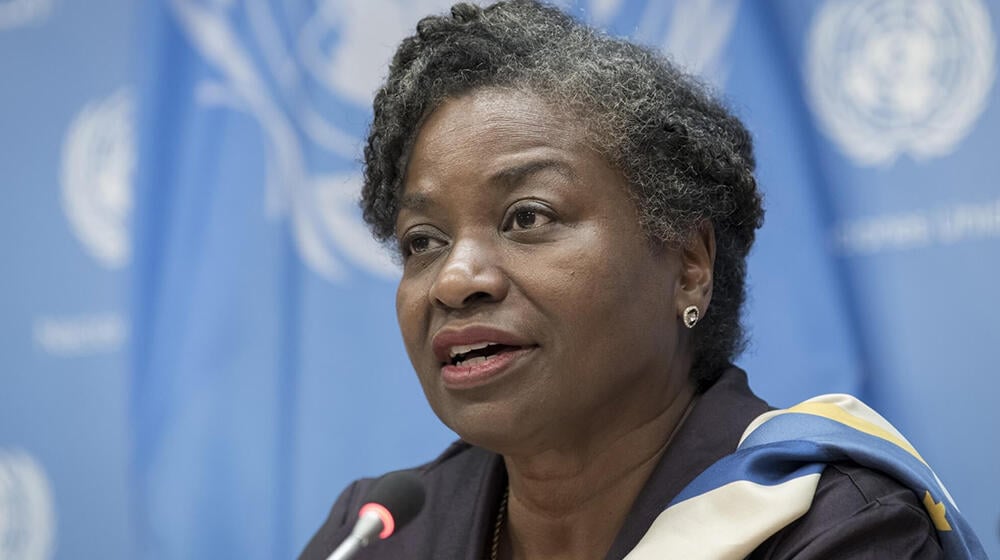When wars begin, so does the terror and devastation of sexual violence. The bodies of women and girls become battlefields. Rape is used as a weapon of war just as surely as the bomb that blows up a building or the tank that ploughs through a crowd.
The consequences of sexual violence are many. It brutalizes bodies, scars minds and even kills. It silences and shames women, sowing fear and insecurity. It leaves a destructive legacy through prolonged disability, sexually transmitted infections, lost wages, health-care costs and stigma that attaches not only to survivors and victims, but to their families as well.
Around the world, women and girls caught in humanitarian crises tell UNFPA that sexual violence is increasingly seen as “normal”. Girls like Khetam* from Iraq. She says she still cannot describe the fear she felt when militants boasted that they would divide her and her friends between them. She pleaded with her captors that she was too young, but after a long night when she and her friends were repeatedly beaten and tortured, she says she gave up.
In 2021, UNFPA’s humanitarian programmes supported 2.4 million survivors of gender-based violence. We helped 1,000 health facilities in 38 countries provide specialized care for rape and other forms of violence. In a number of conflict settings, we have rushed to ensure clinical care and sufficient supplies of emergency contraception.
Sexual violence is a violation of human rights and a crime under international humanitarian law. It should never be ignored, excused or downplayed. In fact, it should not happen at all.
That it does happen is due to the erosion of legal and protection mechanisms in most conflicts. And due to the persistence of blatantly discriminatory ideas, including men thinking they are entitled to the “spoils” of war and that women and girls are useable and disposable. It points to the scale and ubiquity of gender inequality and gender-based violence in all societies, everywhere, an unacceptable reality that is only exacerbated by crises and conflict.
Regardless of the circumstances, all women and girls have inherent rights to be safe, to live in peace and with dignity, to enjoy freedom and equality. As long as sexual violence in conflict continues, UNFPA will provide and advocate for comprehensive, high-quality services for all survivors, along with reliable data. We will stand behind survivor-centred investigations and prosecutions of allegations of sexual violence. And we will do everything possible to disrupt the gender inequalities that feed all forms of gender-based violence.
On the International Day for the Elimination of Sexual Violence in Conflict, this is UNFPA’s reminder that sexual violence in conflict is not “normal”: Its elimination must be.
*Name changed



